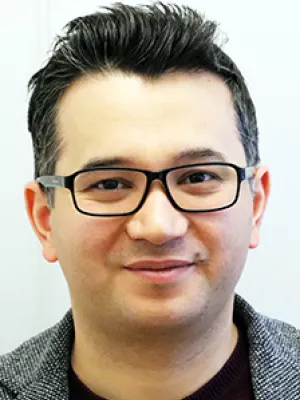
Rustamjon Urinboyev
Associate professor

Migration and Transnational Informality in Post-Soviet Societies : Ethnographic Study of Po rukam (‘handshake’) Experiences of Uzbek Migrant Workers in Moscow
Author
Editor
- Anna-Liisa Heusala
- Kaarina Aitamurto
Summary, in English
The concept of ‘informality’ has become a trendy topic of research in the scholarly literature about post-Soviet societies. The amount of literature focusing on informal practices and networks in post-Soviet space has grown rapidly over last two decades, producing theoretically and empirically grounded accounts of different forms and manifestations of informality, such as clans and regional patronage networks, clientelism, blat networks, bribery, embezzlement, cronyism, kickbacks, etc. One idea common to these aforesaid previous studies is that bulk of them focus on informal practices and their regulatory structures that take place within the boundaries of a single nation-state, thereby confining informality to particular place, field or people, not taking into account the increased (transnational) links between different places and people. Another factor that adds to this complexity is the growing use of information and communication technologies in post-Soviet region, which may reduce the importance of distance between different countries and people, possibly leading to ‘transnationalization‘ of informal practices and power relations.
This paper situates itself in these ‘informality‘ debates by suggesting that the nature of informal practices in post-Soviet societies is changing, not only in terms of content, form and magnitude, but, more importantly, in terms of geographic scope due to ongoing large scale migratory processes, e.g. massive inflow of migrant workers from Central Asia and Caucasus to Russia. Migrant workers, living their lives across the border of two nation-states, become part of the fabric of everyday life and social relations in their home state, while simultaneously becoming part of the socio-economic processes in their receiving state, thereby facilitating daily flow of ideas, social practices and cultural symbols between migrant sending and receiving societies.
Moving beyond methodological nationalism still prevalent in much informality research, I argue that informal practices in post-Soviet societies are becoming increasingly transnational. These processes are especially visible in the construction sector in Moscow, Russia where informal employment of migrant workers is widespread and carried out through so-called ‘po rukam’ (handshake-based) work contracts, which involve multiple formal and informal actors with very different kinds of power and locations of power: migrant workers, posrednik (informal middlemen), construction companies, Russian police officers, protection rackets, family members and village actors (e.g. local community (mahalla) leader and residents, imam, local police) from migrants home state. Hence, this paper, through ethnographic study of ‘po rukam’ experiences of Uzbek migrant workers in Moscow, aims to show how the interaction of the aforesaid actors across borders (via smartphones and Internet) serve as a governance mechanism of the informal migrant labour market in migrant Moscow.
This paper situates itself in these ‘informality‘ debates by suggesting that the nature of informal practices in post-Soviet societies is changing, not only in terms of content, form and magnitude, but, more importantly, in terms of geographic scope due to ongoing large scale migratory processes, e.g. massive inflow of migrant workers from Central Asia and Caucasus to Russia. Migrant workers, living their lives across the border of two nation-states, become part of the fabric of everyday life and social relations in their home state, while simultaneously becoming part of the socio-economic processes in their receiving state, thereby facilitating daily flow of ideas, social practices and cultural symbols between migrant sending and receiving societies.
Moving beyond methodological nationalism still prevalent in much informality research, I argue that informal practices in post-Soviet societies are becoming increasingly transnational. These processes are especially visible in the construction sector in Moscow, Russia where informal employment of migrant workers is widespread and carried out through so-called ‘po rukam’ (handshake-based) work contracts, which involve multiple formal and informal actors with very different kinds of power and locations of power: migrant workers, posrednik (informal middlemen), construction companies, Russian police officers, protection rackets, family members and village actors (e.g. local community (mahalla) leader and residents, imam, local police) from migrants home state. Hence, this paper, through ethnographic study of ‘po rukam’ experiences of Uzbek migrant workers in Moscow, aims to show how the interaction of the aforesaid actors across borders (via smartphones and Internet) serve as a governance mechanism of the informal migrant labour market in migrant Moscow.
Department/s
- Sociology of Law Department
Publishing year
2016-10-05
Language
English
Pages
70-93
Publication/Series
Routledge Contemporary Russia and Eastern Europe Series
Full text
- Available as PDF - 227 kB
- Download statistics
Document type
Book chapter
Publisher
Routledge
Topic
- Other Social Sciences
Status
Published
Project
- Migration and Legal Cultures in Post-Soviet Societies: Ethnographic Study of Uzbek Migrant Workers and Their Families
ISBN/ISSN/Other
- ISBN: 978-1-138-10083-1